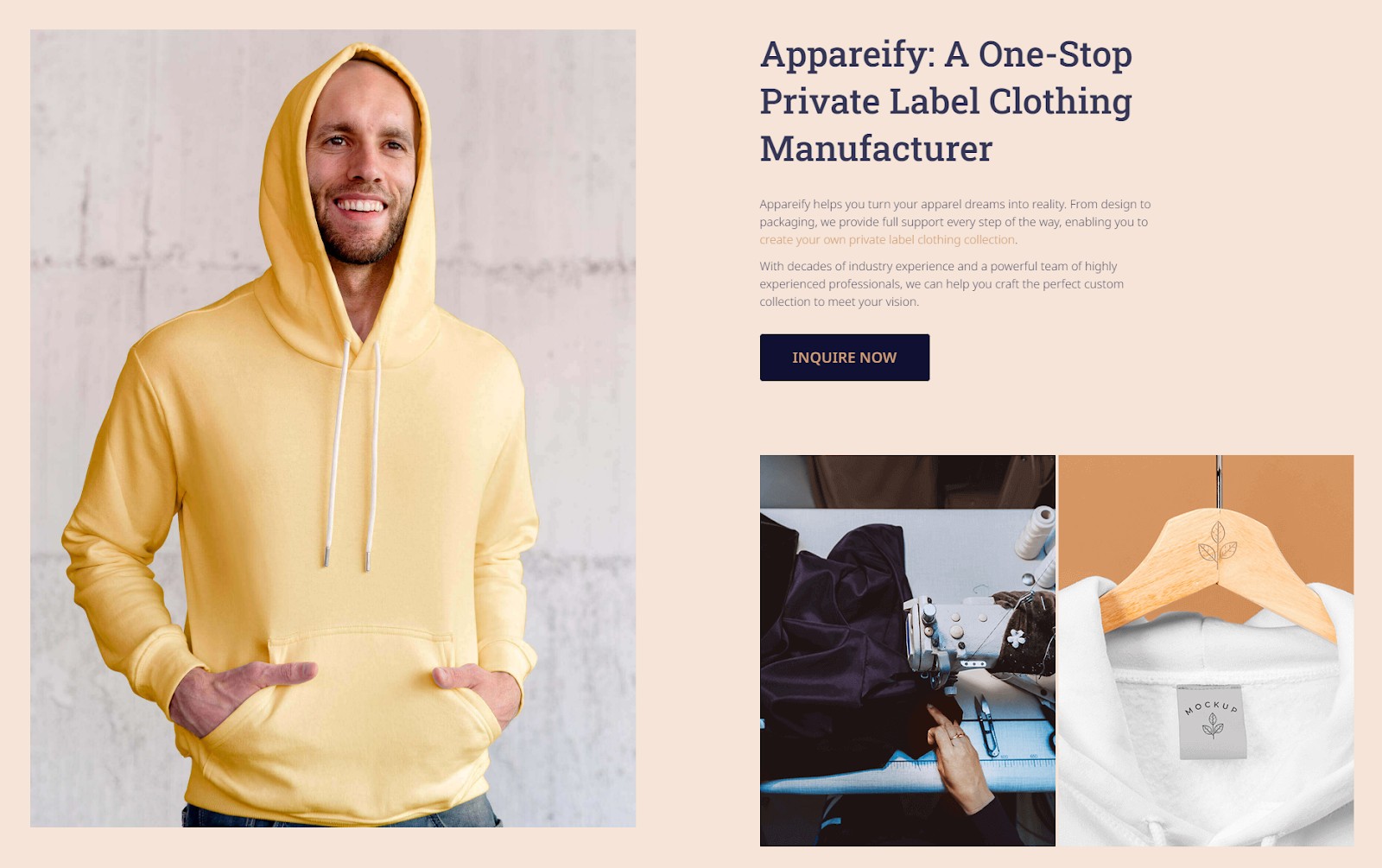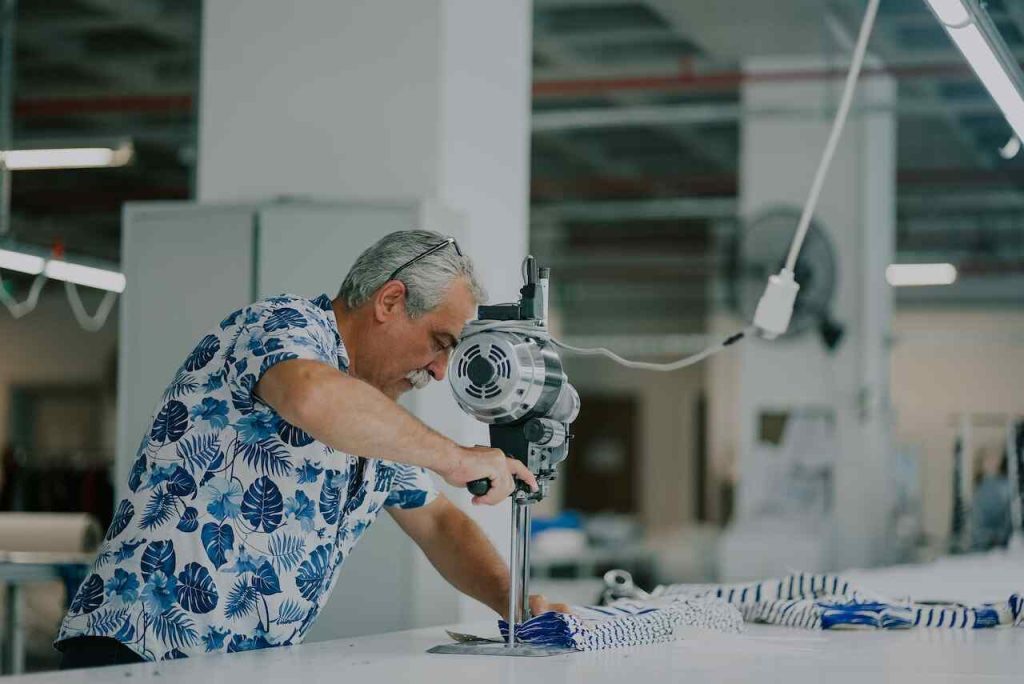So you want to start your own clothing line, but you don’t want the hassle of actually making the clothes yourself. Finding a reliable private label clothing manufacturer is key. But with so many options out there, how do you choose?
This checklist will help ensure you find a manufacturer that can deliver quality goods on time and at a fair price. Because at the end of the day, you want to focus on designing amazing apparel, not sorting through piles of fabric or chasing down late shipments.
Read on to discover the eight must-haves to look for in a private label clothing manufacturer like Appareify. With the right partner handling production, you’ll be well on your way to building a successful clothing brand.

Why Private Label Manufacturing Is the Future
Private label clothing manufacturing is the wave of the future for fashion brands. Here are a few reasons why:
Private label clothing like Appareify allows brands to cut out the middleman and go straight to the source. By working directly with manufacturers, brands can lower costs, improve quality control, and speed up production. They also gain more creative control over the entire process.
- Lower costs. By eliminating third-party sellers and distributors, brands can get wholesale prices directly from the factory. This means higher profit margins and lower retail prices.
- Improved quality. Brands can oversee production firsthand, inspecting materials and construction. They can also provide exact specifications to ensure consistent sizing and quality.
- Faster production. Working directly with manufacturers streamlines the design and production process. New styles can go from concept to retail in a matter of weeks instead of months. This flexibility allows brands to stay on the cutting edge of trends.
- Creative control. Private label manufacturing gives brands full control over materials, construction, and design. They can develop custom fabrics and make sure finished products meet their exact standards. This helps brands maintain a consistent image and style.
For fashion brands, private label clothing is the key to building a successful business. It offers lower costs, higher quality, faster production times, and complete creative control—everything brands need to thrive.
By finding the right manufacturing partner, brands can ensure high-quality, on-trend products at every stage of growth. You can also visit this page to learn more about private label clothing manufacturers.
How to Find the Best Private Label Clothing Manufacturer

Finding the right private label clothing manufacturer, like Appareify, is key to building a successful apparel brand. Here are some must-haves to look for:
A proven track record of high-quality products. Check their samples and client reviews to ensure top-notch craftsmanship and fabrics. You want clothes that will last and impress your customers.
Competitive pricing. Do some comparison shopping to find a manufacturer that offers good value for the quality. They should charge fair prices for materials, labor, and services.
Strong communication and customer service. Look for a manufacturer that responds promptly to questions and provides updates on production timelines and shipping. They should feel like an extension of your team.
Experience with small minimum order quantities (MOQs). As a new brand, you want to test different products without committing to huge orders upfront. Find a manufacturer that will work with smaller MOQs, around 50 to 500 units to start.
Fast turnaround times. Aim for a manufacturer that can deliver orders within 4 to 6 weeks.
Quick turnarounds allow you to get products in front of customers sooner and react faster to trends.
Compliance with ethical and sustainable practices. Choose a manufacturer that complies with fair labor laws and reduces its environmental impact. This aligns with modern consumer values and builds goodwill for your brand.
Flexibility to meet your needs. Look for a manufacturer open to producing the styles, sizes, colors, and details you want. They should accommodate your design requests and specifications.
Comprehensive services. The best manufacturers offer end-to-end services like design consulting, sourcing materials, sample making, production, quality control, packaging, and shipping. This streamlines the process for you.
With the right private label clothing manufacturer behind your brand, you’ll be poised for success. Do your research to find a trusted partner that checks all the boxes. Your customers will surely appreciate the results!
Key Considerations When Evaluating Private Label Manufacturers
When evaluating potential private label clothing manufacturers, there are several key considerations to keep in mind.
Experience and Expertise
Look for a manufacturer with extensive experience producing the specific types of garments you want to sell. They should have expertise in your target market and understand the latest fashion trends, fabrics, and production techniques. An experienced manufacturer will also likely have a streamlined production process, quality control procedures in place, and trusted suppliers and partners to help minimize issues.
Quality and Compliance
High-quality, well-made clothing is essential for building a reputable brand and keeping customers happy. Ensure any potential manufacturer has strict quality control procedures, uses high-quality and compliant materials, and meets all industry standards and regulations. They should be willing to provide quality assurance documentation and testing reports. It may also be a good idea to obtain product samples to review the quality firsthand.
Capacity and Turnaround
Make sure the manufacturer has enough production capacity to meet your needs, especially if you plan to scale quickly. They should be able to turn around orders within a reasonable timeframe to keep your inventory stocked. Discuss their production schedule, typical order turnaround times, and how they handle rush or high-volume orders.
Pricing and MOQs
A good private label clothing manufacturer will offer competitive pricing and reasonable minimum order quantities (MOQs) that fit your budget and needs. While lower prices and MOQs may seem appealing, don’t sacrifice quality for the sake of a good deal. Discuss their standard pricing for the types of garments you want to produce and see if they’re willing to negotiate, especially for large or repeat orders.
Responsiveness and Communication
Look for a manufacturer that is highly responsive, communicative, and willing to work collaboratively. They should respond to inquiries, questions, and issues in a timely manner and keep you up to date on the production process, delivery schedules, and any challenges. Clear communication is the key to a successful partnership.
The Importance of Quality and Compliance
When producing private label clothing, quality and compliance are of the utmost importance. Following industry standards and best practices will ensure customer satisfaction and build brand loyalty.
● High-quality materials and construction. Use fabrics and manufacturing processes that will withstand regular use and washing. Double-stitch seams and test zippers and buttons to confirm durability. Inferior quality will reflect poorly on the brand and discourage repeat customers.
● Compliance with safety and care standards. All garments should meet flammability, toxicity, and care requirements for the intended market. Proper labeling allows customers to care for the clothing properly and avoid damage. Non-compliance can lead to legal issues and harm the brand’s reputation.
● Consistency across products. Maintain the same level of quality across all private label products. Variation in sizing, construction, or materials will confuse customers and weaken brand identity. Tight quality control procedures should be implemented to achieve consistency.
● Ethical and sustainable practices. Environmentally-friendly and socially-conscious customers prefer brands that value ethics and sustainability. Choosing organic, recycled, and sustainably-sourced materials and fair labor practices will appeal to these consumers. Certifications like Fair Trade can also be pursued to verify ethical standards.
● Quality assurance testing. Conduct testing at multiple points in the production process to catch any issues early on. Inspect materials, individual components, and finished products to check that specifications are met. Make any necessary corrections before the products are shipped to customers. Rigorous testing is the only way to truly guarantee high quality.
Following these best practices for private label clothing production will satisfy customers, build a reputable brand, and encourage repeat business. While quality assurance does require an investment of resources, the long term rewards for the brand and customer satisfaction make it well worth the effort. Producing high-quality, compliant clothing is the foundation for success in private label apparel.
FAQ: Frequently Asked Questions About Private Label Clothing Manufacturers
When looking for a private label clothing manufacturer, you’ll likely have some questions about the process and what to expect. Here are some of the most frequently asked questions and what you need to know:
What services do private label clothing manufacturers offer?
Private label clothing manufacturers offer a range of services to help you develop and produce your own clothing line. This includes:
- Designing custom styles based on your vision
- Sourcing high-quality materials and fabrics
- Pattern making and sample creation
- Full-scale production of your designs
- Quality control and assurance testing
- Shipping and logistics to get your products to customers
How much does it cost to manufacture private label clothing?
Costs can vary significantly based on factors like the type of garments, materials used, complexity of designs, production quantities, and the manufacturer’s location. You can expect to pay between $5 and $30 per unit or more for high-end garments. Most manufacturers require a minimum order quantity (MOQ) of around 100 to 500 units per style to keep costs affordable.
How long does the production process take?
The production timeline depends on the type of garments and quantities. Simple t-shirts and tops can take 4 to 6 weeks, while more complex outerwear and formalwear may require 3 months or more. It’s best to plan at least 6 to 12 months in advance for your first production run to allow for design finalization, sampling, and pre-production steps before full manufacturing begins.
What should I look for in a manufacturer?
Look for manufacturers with years of experience producing garments similar to yours. Check if they offer services to support your needs and have a solid reputation for high quality and on-time delivery.
Consider their location, as domestic manufacturers may have shorter lead times and allow for easier communication, while overseas production may have lower costs. Get references from past clients and check if they’re certified for ethical and sustainable practices.
With the right manufacturer by your side, developing and launching your own private label clothing line can be an exciting endeavor. By understanding what’s involved in the process and what to look for in a partner, you’ll be well on your way to building your brand.
Conclusion
At the end of the day, finding the right private label clothing manufacturer like Appareify is key to building a successful apparel brand. Do your homework, ask the right questions, and make sure any potential partners check all the boxes on your list.
If a manufacturer can deliver high quality, affordable products with fast turnaround times and provide the support and service you need, you’ll be well on your way to creating a brand your customers will love. The competition is fierce, but with the right team behind you, the sky’s the limit. Now get out there and make your fashion dreams a reality!

